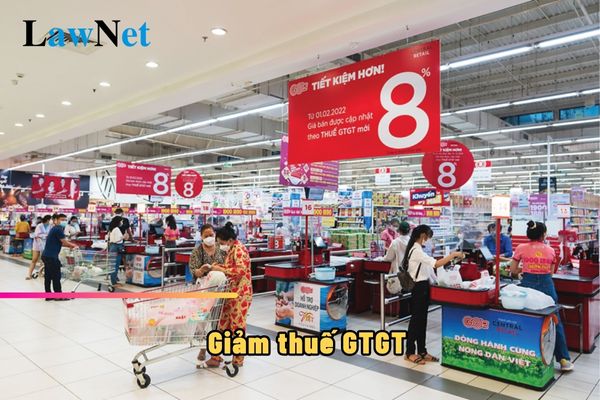What is the value-added tax rate for soft drinks in Vietnam?
What is the value-added tax rate for soft drinks in Vietnam?
Pursuant to Clause 1, Article 10 of Circular 219/2013/TT-BTC as amended by Clause 6, Article 1 of Circular 26/2015/TT-BTC, the value-added tax rate for soft drinks is prescribed as follows:
Tax Rate 5%
1. Clean water for production and living purposes, excluding bottled or canned drinking water and other beverages subject to a tax rate of 10%.
- Ores for fertilizer production; pesticides and growth stimulants for animals and plants, including:
a) Ores for fertilizer production are those ores used as raw materials for fertilizer production such as Apatite ore for phosphate fertilizer, and peat for microbiological fertilizers;
b) Pesticides include plant protection drugs according to the list issued by the Ministry of Agriculture and Rural Development and other pesticides;
c) Growth stimulants for animals and plants.
...
From the above regulation, it can be seen that soft drinks, including soft drinks, are subject to a value-added tax rate of 10%.

What is the value-added tax rate for soft drinks in Vietnam? (Image from the Internet)
When is the time for determining the value-added tax for the sale of soft drinks in Vietnam?
According to Article 8 of Circular 219/2013/TT-BTC, the time to determine the value-added tax is prescribed as follows:
Time to Determine VAT
- For the sale of goods, it is the time of transfer of ownership or right to use the goods to the buyer, regardless of whether the money has been received or not.
- For the provision of services, it is the time of completion of the service provision or the time of issuing the service provision invoice, regardless of whether the money has been received or not.
For telecommunication services, it is the time of completion of data reconciliation on telecommunication connection service fees according to the economic contract between the telecommunication service business establishments, but no later than 2 months from the month in which the telecommunication connection service charge arises.
- For electricity and clean water supply, it is the date of recording the consumed electricity and water meter index for invoicing.
- For real estate business activities, infrastructure construction, and house construction for sale, transfer, or lease, it is the time of receiving money according to the project progress or payment schedule noted in the contract. Based on the amount collected, the business establishment declares the output VAT arising in the period.
- For construction and installation, including shipbuilding, it is the time of acceptance, handover of the construction work, construction item or completed construction and installation volume, regardless of whether the money has been received or not.
- For imported goods, it is the time of registering the customs declaration.
Thus, the time for determining the value-added tax for the sale of soft drinks is the time of transfer of ownership or right to use the goods to the buyer, regardless of whether the money has been received or not.
Where to submit value-added tax for the sale of soft drinks in Vietnam?
According to the provisions of Article 20 of Circular 219/2013/TT-BTC on determining the place to submit tax:
Place to Submit Tax
- Taxpayers declare and pay VAT at the locality where production or business is conducted.
- Taxpayers who declare and pay VAT using a deduction method and have production facilities with dependent accounting located in a province or centrally-run city different from the province or city where the headquarters is located must submit VAT at the locality of the production facility and the locality of the headquarters.
- In cases where enterprises, cooperatives apply the direct method with production facilities in a different province or city from the headquarters or engage in out-of-province itinerant sales, they must declare and pay VAT at a percentage rate on revenue for out-of-province revenues at the locality of the production facility and place of itinerant sales. Enterprises, cooperatives are not required to pay VAT at the percentage rate on revenue at the headquarters for out-of-province revenues already declared and paid.
- In cases where telecommunication service business establishments engage in postpaid telecommunication services at a provincial locality different from where the headquarters is located and establish a dependent accounting branch paying VAT using the deduction method to jointly participate in postpaid telecommunication services at that locality, the telecommunication service business establishments declare and pay VAT for postpaid telecommunication services as follows:
- Declare VAT for postpaid telecommunication service revenue of the entire business establishment with the tax authority directly managing the headquarters.
- Pay VAT at the locality of the headquarters and the locality where there is a dependent accounting branch.
The VAT amount to be paid at the locality of the dependent accounting branch is determined at a rate of 2% (for postpaid telecommunication services subject to VAT at 10%) on the revenue (excluding VAT) from postpaid telecommunication services at the locality of the dependent accounting branch.
- Tax declaration and payment are implemented according to the provisions of the Law on Tax Administration and its guiding documents.
Thus, for goods such as soft drinks, taxpayers declare and pay VAT at the locality where production or business is conducted.
In cases where taxpayers declare and pay VAT using the deduction method and have production facilities with dependent accounting located in a province or centrally-run city different from the province or city where the headquarters is located, they must submit VAT at the locality of the production facility and the locality of the headquarters.
In cases where enterprises, cooperatives apply the direct method with production facilities in a different province or city from the headquarters or engage in out-of-province itinerant sales, they must declare and pay VAT at a percentage rate on revenue for out-of-province revenues at the locality of the production facility and the place of itinerant sales. Enterprises, cooperatives are not required to pay VAT at the percentage rate on revenue at the headquarters for out-of-province revenues already declared and paid.



- What is the currency unit used in tax accounting in Vietnam?
- Which enterprise groups will the General Department of Taxation of Vietnam focus on inspecting and auditing in 2025?
- What are guidelines on online submission of unemployment benefits application in Vietnam in 2025? Are unemployment benefits subject to personal income tax?
- How long can the tax audit period on taxpayers’ premises in Vietnam be extended for complex matters?
- From January 1, 2025, which entities are exempted from ferry service fees from the state budget in Vietnam?
- How to determine VAT applicable to ships sold to foreign organizations in Vietnam?
- What is the maximum penalty for late submission of tax declaration dossiers in Vietnam?
- What is the duty-free allowance on gifts given for humanitarian in Vietnam?
- Are votive papers subject to excise tax up to 70% in Vietnam?
- Shall enterprises use invoices during suspension of operations in Vietnam?

